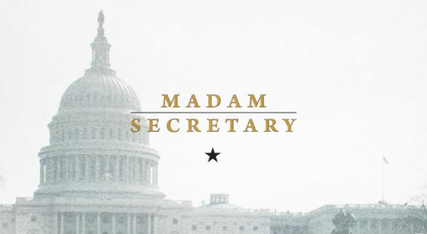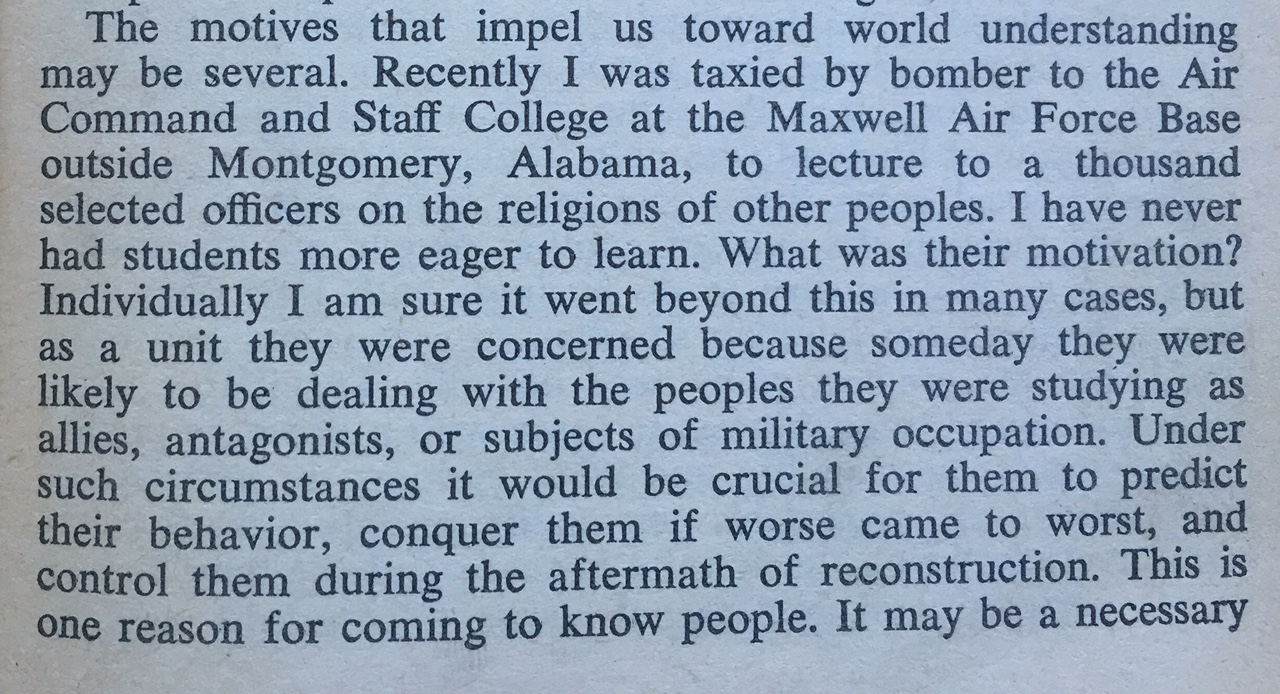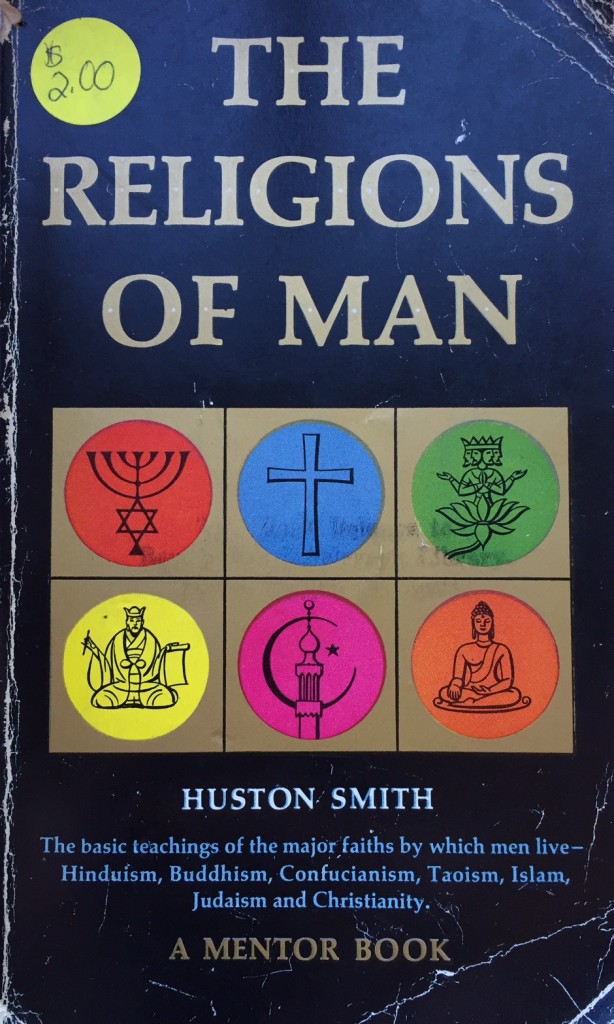
I’ve been watching some episodes from season one (2014) of “Madam Secretary” — the story of a CIA analyst turned UVA Poli Sci prof who gets tapped to become the US Secretary of State. Her husband, Henry, a former Marine pilot, is a theology prof at Georgetown — you know this because he’s earnest and seems to regularly talk about Thomas Aquinas and St. Augustine.

What caught my ear was in episode 19, “Spartan Figures,” where we learn that the National War College has taken an interest in Henry, wanting him to join their faculty. As phrased by the Brigadier General who pays him a visit after class one day (where he was lecturing on just war theory):
We think you’d fit nicely in our Strategic Studies department… You’d be a strong addition to our faculty…. Yes, it is rewarding, shaping the minds of liberal arts students. But our students need to understand the beliefs and customs of a potential enemy. You would be teaching all the future military and national security leaders. And working for the Defense Department.
If you’re aware of the early editions of Huston Smith’s now classic intro to world religions (text that was excised from its many later editions), then this all might strike you as rather familiar. For, as I’ve quoted before, Smith argued, back in 1958, that:

As the paragraph concludes on the following page:
It may be a necessary reason; certainly we have no right to disdain it as long as we ask the military to do the job we set before it.
No doubt there are all sorts of reasons for studying religion, and all sorts of practical effects of the work carried out in the humanities; but it struck me as interesting that this one reason persists — it was there at the very start of our field, at the height of the colonial era, in fact. And here, in two texts separated by almost 60 years, we see it repeated almost word for word.
So I was wondering what others in the field think of this reason for studying religion?

Actually, it might be closer to all apples, since the book developed from Smith’s1955 St Louis educational television series/course by the same title. It’s mass communication all the way down…
It’s really not much different from the way “World Religions” is approached in some confessional colleges: the more one knows about folks of different religions, the easier it is to convert them to the right faith.
Smith’s was writing as an academic but the TV show is certainly not academic. In a sense, you are comparing apples and oranges, but I’m sure LOTS of folks who study Islam, Arabic, or the Middle East have caught the eye of various security forces as potential resources. I’ve never seen the show but is it also commenting here on the commodification of education? Subjects are only valuable insofar as they assist “real” issues like security (or the economy or whatever?)